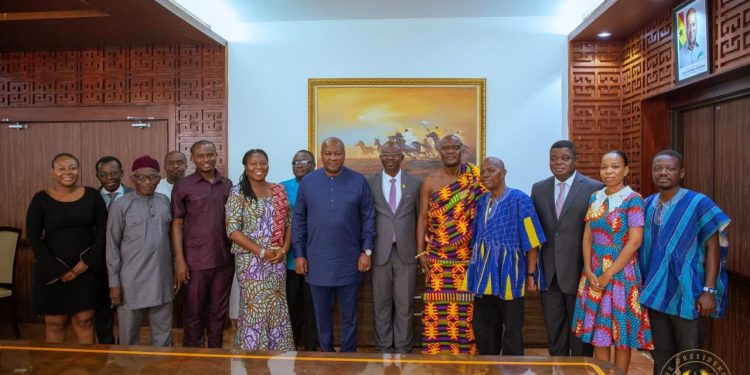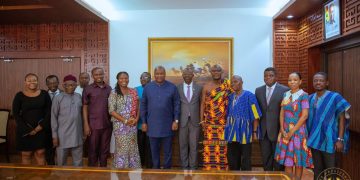PIAC yet to see Restoration of Funding Under ABFA Despite Assurance from President Mahama
The Public Interest and Accountability Committee (PIAC) says it is yet to see any concrete results from its July 11, 2025, meeting with President John Dramani Mahama concerning the Committee’s funding challenges following amendments to the Petroleum Revenue Management Act (PRMA).
According to PIAC Coordinator, Mr. Dwamena, the President, during the engagement assured the Committee that he would liaise with the Ministry of Finance to restore its funding under the Annual Budget Funding Amount (ABFA), but that directive is yet to materialise.
“PIAC has made efforts to reach the Minister for Finance, the first ministry we deal with. These efforts are yet to yield fruit. PIAC wrote to the Presidency to meet the President, and the President opened his doors to PIAC. The members met the President on the 11th of July and made these concerns known to him, including PIAC’s funding. The President indicated that he would liaise with the Minister for Finance and direct him to provide for PIAC funding and also see to restoring the amendments. PIAC has yet to see these happen,” remarked Mr. Dwamena during a virtual media engagement on the Committee’s 2025 Semi-Annual Report organised with support from Good Governance Africa on Wednesday, October 22, 2025.
President Mahama, in that meeting, reaffirmed the Government’s commitment to ensuring PIAC continues to play its critical oversight role in Ghana’s petroleum revenue management framework.
PIAC’s operations have, however, been severely constrained following the removal of its funding source from the ABFA under the amended PRMA, 2025 (Act 1138). The amendment, passed in April 2025, redirected ABFA allocations exclusively toward infrastructure development under the Government’s “Big Push” agenda and to the District Assemblies Common Fund (DACF) for similar purposes.
As a result, PIAC is now financed through general budgetary allocations from the Ministry of Finance, the very institution it is mandated to monitor. The Committee reports that it has received only GH¢4.6 million out of a requested GH¢20.5 million for the 2025 fiscal year, representing just 21.43 percent of its budget and 41.07 percent of funds approved in 2024.
The shortfall has significantly impaired PIAC’s oversight work, forcing it to complete only one of four planned quarterly monitoring visits this year. Officials say even routine public engagements now rely on donor support, a situation that starkly contrasts with 2024, when the government provided nearly the entire GH¢11.3 million budget directly from petroleum revenues.
The Committee’s funding model, prior to the amendment, in place since 2016, guaranteed that PIAC received resources directly from oil revenues, ensuring an average 85.5 percent of budget coverage between 2016 and 2024. Before that arrangement took effect, PIAC’s operations were perpetually underfunded, with only 31 percent of requested funds typically disbursed and frequent reliance on donor and civil society support.
Stakeholders have cautioned that the current arrangement risks undermining PIAC’s independence and ability to hold government accountable for the management of petroleum revenues, a core mandate envisioned under the PRMA framework.








